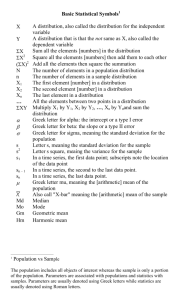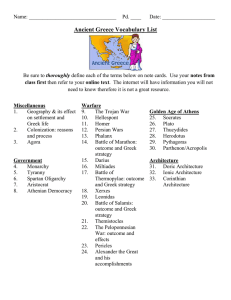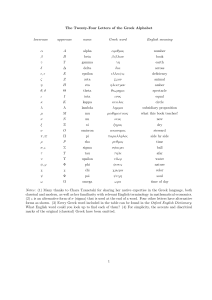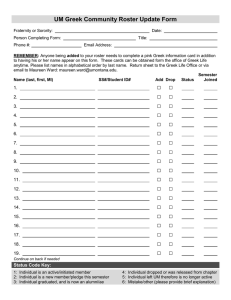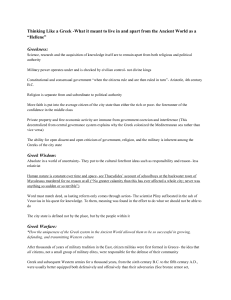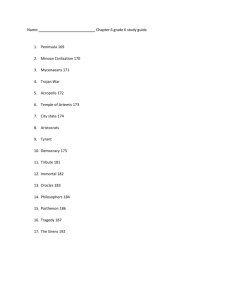Handout1a
advertisement
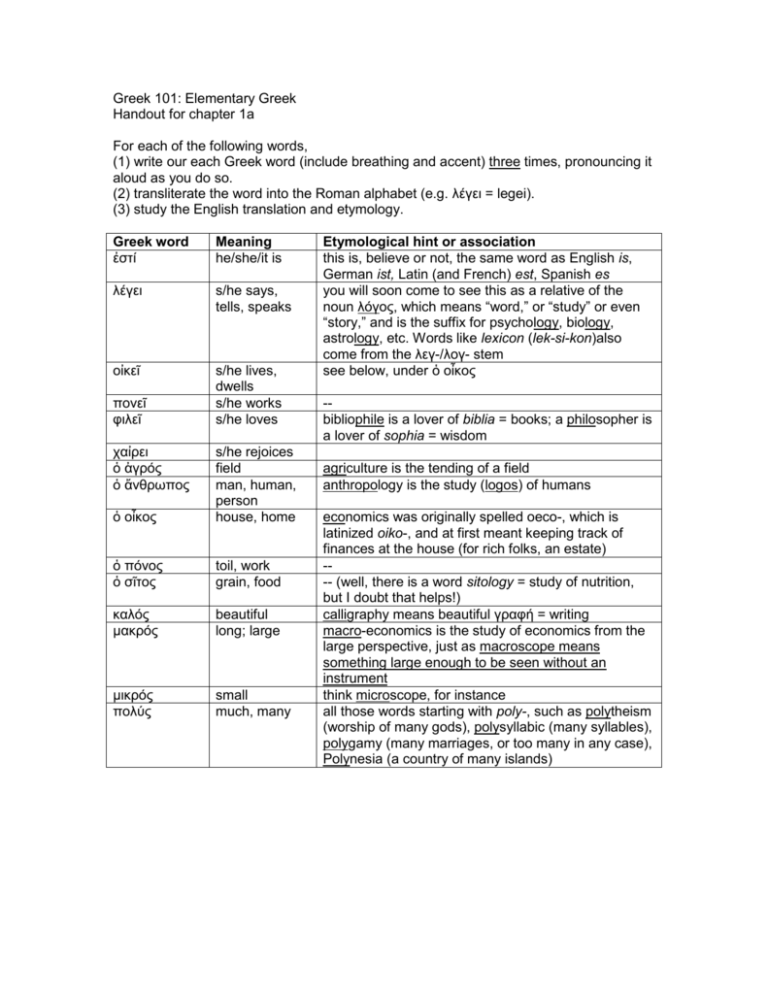
Greek 101: Elementary Greek Handout for chapter 1a For each of the following words, (1) write our each Greek word (include breathing and accent) three times, pronouncing it aloud as you do so. (2) transliterate the word into the Roman alphabet (e.g. λέγει = legei). (3) study the English translation and etymology. Greek word ἐστί Meaning he/she/it is λέγει s/he says, tells, speaks οἰκεῖ s/he lives, dwells s/he works s/he loves πονεῖ φιλεῖ χαἰρει ὁ ἀγρός ὁ ἄνθρωπος ὁ οἶκος s/he rejoices field man, human, person house, home ὁ πόνος ὁ σῖτος toil, work grain, food καλός μακρός beautiful long; large μικρός πολύς small much, many Etymological hint or association this is, believe or not, the same word as English is, German ist, Latin (and French) est, Spanish es you will soon come to see this as a relative of the noun λόγος, which means “word,” or “study” or even “story,” and is the suffix for psychology, biology, astrology, etc. Words like lexicon (lek-si-kon)also come from the λεγ-/λογ- stem see below, under ὁ οἶκος -bibliophile is a lover of biblia = books; a philosopher is a lover of sophia = wisdom agriculture is the tending of a field anthropology is the study (logos) of humans economics was originally spelled oeco-, which is latinized oiko-, and at first meant keeping track of finances at the house (for rich folks, an estate) --- (well, there is a word sitology = study of nutrition, but I doubt that helps!) calligraphy means beautiful γραφή = writing macro-economics is the study of economics from the large perspective, just as macroscope means something large enough to be seen without an instrument think microscope, for instance all those words starting with poly-, such as polytheism (worship of many gods), polysyllabic (many syllables), polygamy (many marriages, or too many in any case), Polynesia (a country of many islands)



